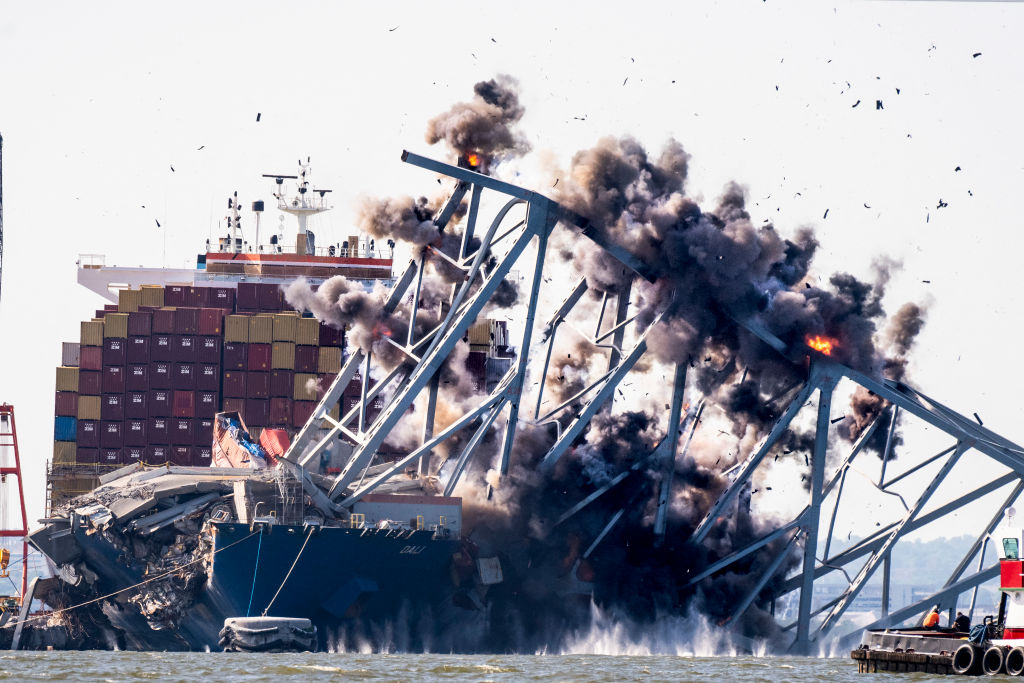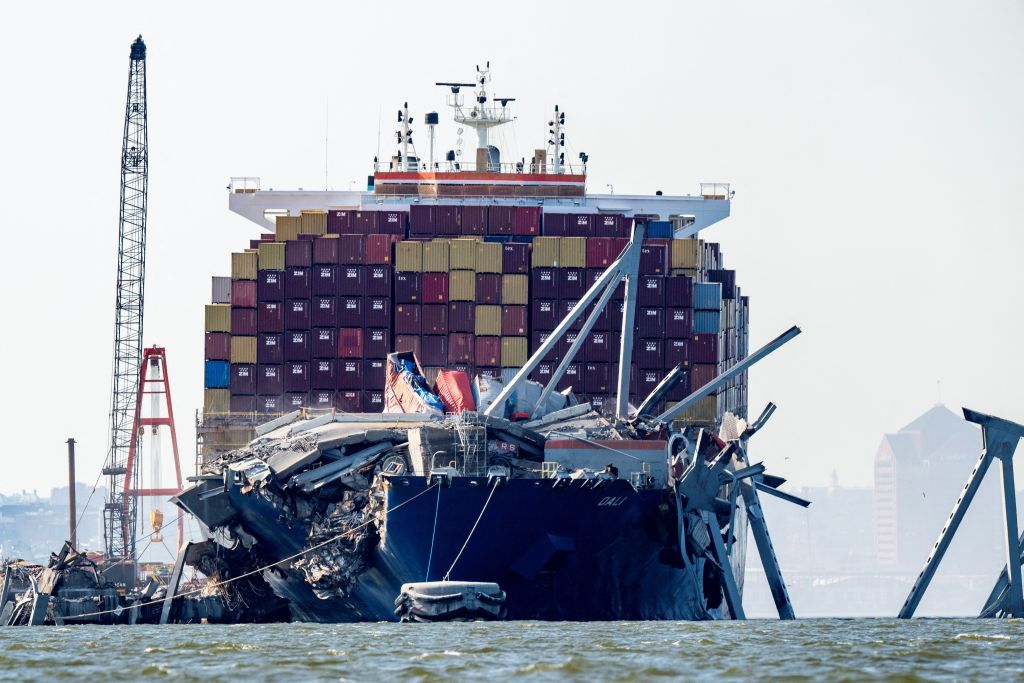Baltimore Bridge Span Blown Up as Effort to Clear Main Shipping Channel Continues
Engineers used high explosive charges to cut steel on the bridge truss resting on the bow of the MV Dali in the Patapsco River outside Baltimore Harbour, an important step towards a full reopening of the river.
The largest remaining piece of the Francis Scott Key Bridge over the Patapsco River in Baltimore, Maryland was demolished with explosive charges on Monday afternoon. Engineers had placed what governor Wes Moore called “precision cutting” charges at key joints on the truss over the course of several weeks, but the blast was delayed one day by bad weather.
The simultaneous explosion of the charges on Monday caused the majority of the truss to come apart and fall off the bow of the MV Dali and into the river. A part of the roadway remains on the ship, as do some of the steels, but whether these will be removed or taken with the Dali when it is floated off this month has not been revealed by the Baltimore authorities yet.

TOPSHOT – Crews conduct a controlled demolition of a section of the Francis Scott Key Bridge resting on the Dali container ship in Baltimore on May 13, 2024. The Francis Scott Key Bridge, a major transit route into the busy port of Baltimore, collapsed on March 26 when the Dali container ship lost power and collided into a support column, killing six roadway construction workers. (Photo by ROBERTO SCHMIDT/AFP via Getty Images)
When the container ship struck the bridge in late March following what appeared to be a momentary total loss of power, bringing the structure crashing down in a rapid cascade failure, the remains of the bridge and the ship itself blocked the mouth of Baltimore harbour, one of the busiest American ports. While emergency shallow-draft channels have already been cleared around the epicentre of the disaster, the main Federal Channel which is deep-dredged to 50 feet for the largest visiting cargo ship remains blocked.
Re-opening the main channel and bringing Baltimore Harbour back up to capacity is closer now though, following the demolition charges. Baltimore says it wants to get the channel cleared by the end of this month.
Maryland governor Wes Moore said in a statement before the blast that “we remain on track to reopen the full 50′ channel” and the demolition charges were intended to remove the pieces of bridge that “still needs to be removed in order for the Dali to be refloated so we can then continue the process of fully opening up the Federal Channel”.
Of the pace of work, Moore crowed about the speed at which the engineers were moving towards clearing the channel, which he said had confounded some who “looked at the complexity of this operation said this is going to take months to clear this channel”. Indeed, he said: “we are now very close to fully clearing the channel and we are already getting large ships in and out of the Port of Baltimore. And over the next week we are expecting about 30 vessels and barges at the port’s public and private terminals. Those vessels will include container ships, roll-on-roll-off ships carrying farm machinery and new cars, bulk ships carrying sugars, metals, and oil… we’ve been able to get it done in a matter of weeks.”
The Dali, which is aground, will now be refloated and moved by a flotilla of tugs back to the harbour wall, where its containers will be unloaded and initial repairs undertaken. It is likely to ultimately head to a ship yard for repairs so it can re-enter commercial service.

BALTIMORE, MARYLAND – MAY 13: In this aerial view, a steel truss from the destroyed Francis Scott Key Bridge that was pinning the container ship Dali in place was detached from the ship using a controlled detonation of explosives in the Patapsco River on May 13, 2024 in Baltimore, Maryland. An estimated 500-foot section of the bridge weighing 8-12 million pounds was removed by controlled demolition in the final stage of wreckage removal for the ship to be moved into port. On March 26th the Dali crashed into the Key Bridge causing it to collapse killing six construction workers. (Photo by Chip Somodevilla/Getty Images)







Comments are closed.